Fleurs du Mal Magazine


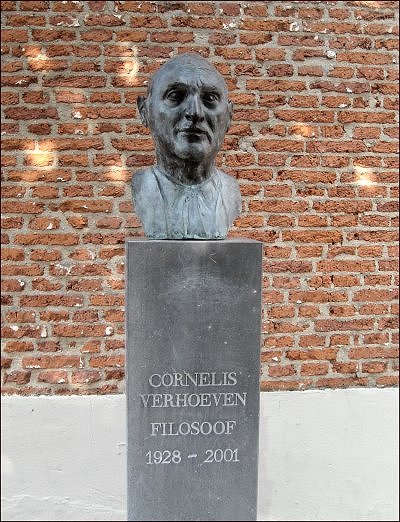
photo: jefvankempen
De glans van oud ijzer
Hommage aan Cornelis Verhoeven
tekst: Charles Vergeer
met citaten van Cornelis Verhoeven
en met foto’s van 15 kunstwerken van Jeanne Schouten
geïnspireerd door het werk van Verhoeven
Oplage 200 exx.
Brandon Pers Tilburg
uitgave nr. 59
november 2011
prijs 17 euro
te bestellen via email: c.vergeer@fontys.nl
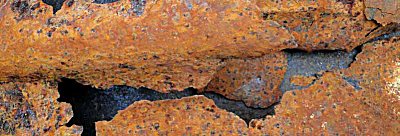
fleursdumal.nl magazine
More in: Archive U-V, Cornelis Verhoeven
.jpg)
Alfred de Musset
(1810-1857)
Sur une morte
Elle était belle, si la Nuit
Qui dort dans la sombre chapelle
Où Michel-Ange a fait son lit,
Immobile peut être belle.
Elle était bonne, s’il suffit
Qu’en passant la main s’ouvre et donne,
Sans que Dieu n’ait rien vu, rien dit,
Si l’or sans pitié fait l’aumône.
Elle pensait, si le vain bruit
D’une voix douce et cadencée,
Comme le ruisseau qui gémit
Peut faire croire à la pensée.
Elle priait, si deux beaux yeux,
Tantôt s’attachant à la terre,
Tantôt se levant vers les cieux,
Peuvent s’appeler la Prière.
Elle aurait souri, si la fleur
Qui ne s’est point épanouie
Pouvait s’ouvrir à la fraîcheur
Du vent qui passe et qui l’oublie.
Elle aurait pleuré si sa main,
Sur son coeur froidement posée,
Eût jamais, dans l’argile humain,
Senti la céleste rosée.
Elle aurait aimé, si l’orgueil
Pareil à la lampe inutile
Qu’on allume près d’un cercueil,
N’eût veillé sur son coeur stérile.
Elle est morte, et n’a point vécu.
Elle faisait semblant de vivre.
De ses mains est tombé le livre
Dans lequel elle n’a rien lu.
Alfred de Musset poetry
kempis.nl poetry magazine
More in: Archive M-N, Musset, Alfred de
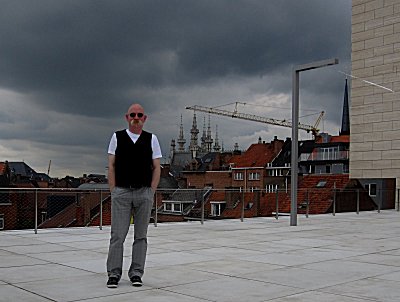
Havenbeeld
Wees gerust oude golven, niemand
weet de weg. Wij zwerven helemaal thuis.
Bollend als een meisjeshandschrift troost
uit regen op kranen. Wit krijt,
uitlopende tekens. De wereld is zo wijd:
meeuwen scheren krijsend langs de gilling.
Bert Bevers
verschenen in Antwerpen, de stad in gedichten, (samenstelling Philip Hoorne), Uitgeverij 521, Amsterdam, 2003
kempis.nl poetry magazine
More in: Archive A-B, Bevers, Bert
![]()
Die andere Seite des Mondes
Künstlerinnen der Avantgarde
K20 Grabbeplatz, Düsseldorf
bis 15.01.2012
Im Mittelpunkt der Ausstellung “Die andere Seite des Mondes” stehen acht Künstlerinnen, die in den 1920er und 1930er Jahren maßgeblich an den ästhetischen Neuerungen in Europa beteiligt waren. Durch ihr hohes künstlerisches Niveau, ihre zielstrebige Kontaktsuche […]
Kuratorin: Dr. Susanne Meyer-Büser
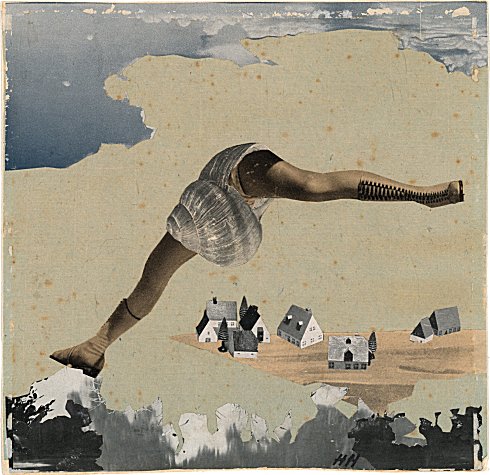
Hannah Höch, Siebenmeilenstiefel, um 1934, Photomontage, 22,9 x 32,29 cm, Hamburger Kunsthalle. Foto: © VG Bild-Kunst, Bonn 2011, Foto: Christoph Irrgang. © Kunstsammlung NRW
Im Mittelpunkt der Ausstellung Die andere Seite des Mondes stehen acht Künstlerinnen, die in den 1920er und 1930er Jahren maßgeblich an den ästhetischen Neuerungen in Europa beteiligt waren. Durch ihr hohes künstlerisches Niveau, ihre zielstrebige Kontaktsuche und unbedingtes Engagement vernetzten sie sich stets im Zentrum der Avantgarde. Es sind Claude Cahun, Dora Maar, Sonia Delaunay, Florence Henri, Hannah Höch, Sophie Taeuber-Arp und die weniger bekannten Katarzyna Kobro und Germaine Dulac, deren Leben und Werke in der Ausstellung erstmals in dieser Zusammenstellung entdeckt werden können. Die Gesamtspanne der künstlerischen Arbeiten umfasst unterschiedlichste ästhetische Richtungen vom Dadaismus über den Konstruktivismus bis hin zum Surrealismus. Ebenso vielfältig sind die künstlerischen Mittel, die Malerei, Fotografie, Collage, Film und Skulptur umfassen.
Die andere Seite des Mondes wendet sich den weiblichen Pionieren der Avantgarde zu: Künstlerinnen, die frühzeitig an den Bewegungen ihrer Zeit teilgenommen und die zur Begründung und Verbreitung neuer Stilrichtungen beigetragen haben. Beispielhaft für diese Riege der Pionierinnen steht Sophie Taeuber-Arp (1889-1943).
Zum Kreis dieser einflussreichen und kommunikativen Künstlerinnen zählen ebenso Hannah Höch (1889-1978), die mit ihren Collagen zu den Begründern des Berliner Dadaismus gehörte, sowie Sonia Delaunay (1885-1979). Sie bereitet in Paris den Weg zur reinen Malerei und revolutioniert die Modeindustrie mit einem eigenen Label.
Fast alle der vorgestellten Künstlerinnen waren zeitweise eng miteinander befreundet, andere kannten sich indirekt durch ihre Werke. Die Wege, Querverbindungen, wechselnden Freundschaften und temporären Paarbildungen – kurz: die europaweiten Netzwerke dieser Künstlerinnen – sollen in den rund 220 Werken der Ausstellung sichtbar und erfahrbar werden.
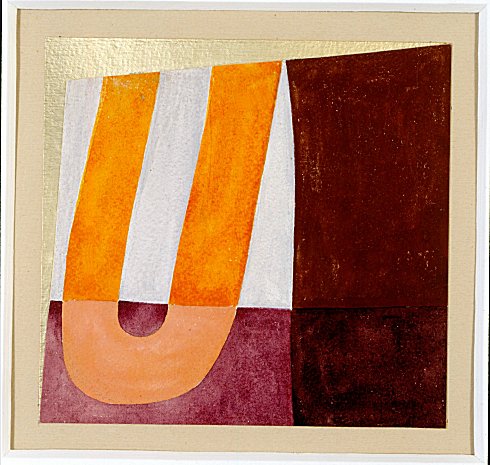
Sophie Taeuber-Arp, Composition à forme „U“ (Komposition mit U-Form), 1918, Collage, Aquarell und Gouache, 24,8 x 25,8 cm, Stiftung Hans Arp und Sophie Taeuber-Arp e.V., Remagen-Rolandswerth. Foto: © PRO LITTERIS, Zürich / VG Bild-Kunst, Bonn 2011 © Kunstsammlung NRW
Die Ausstellung ist gemacht in Kooperation mit dem Louisiana Museum of Modern Art, Humlebæk, Dänemark. Es gibt ein Katalog im DuMont-Verlag.
fleursdumal.nl magazine
More in: Dada, Galerie Deutschland

Bultloos genoegen
Lijst boven de bank
weerspiegelt wuiven van grote boom voor het huis,
zoals helder water dat doet
met bomen rondom, juist dat vindt hij mooi.
Soms picknickt hij onder het ruisende glas,
met broodjes en zoetste bloeddelicatessen paraat
voor hongerige magen van hem
en zijn zwermen geliefde huisgenootjes.
Hij leest ze voor uit een boek, of poëziebundel soms,
als hij in een uitzonderlijke bui is,
vooral fruitvliegjes luisteren graag, maar ook muggen
beleven dierlijk plezier aan liefst wilde literatuur
dan worden ze kalm,
prikken even hun steekinstrumenten in niets,
gezien andere prioriteiten,
ook daarom leest hij graag voor
‘s zomers altijd.
Freda Kamphuis
kempis. nl poetry magazine
gedicht freda kamphuis ©
More in: Archive K-L, Kamphuis, Freda

William Shakespeare
(1564-1616)
THE SONNETS
106
When in the chronicle of wasted time,
I see descriptions of the fairest wights,
And beauty making beautiful old rhyme,
In praise of ladies dead, and lovely knights,
Then in the blazon of sweet beauty’s best,
Of hand, of foot, of lip, of eye, of brow,
I see their antique pen would have expressed,
Even such a beauty as you master now.
So all their praises are but prophecies
Of this our time, all you prefiguring,
And for they looked but with divining eyes,
They had not skill enough your worth to sing:
For we which now behold these present days,
Have eyes to wonder, but lack tongues to praise.
![]()
kempis.nl poetry magazine
More in: -Shakespeare Sonnets

Luigi Pirandello: Shoot! (01)
Shoot! (Si Gira, 1926) The Notebooks of Serafino Gubbio, Cinematograph Operator
Translated from the Italian by C. K. Scott Moncrieff
Translator’s Dedication To O. H. H. and V. B. H. Who have seen and survived the Nestaroff.
BOOK I
OF THE NOTES OF SERAFINO GUBBIO CINEMATOGRAPH OPERATOR
1
I study people in their most ordinary occupations, to see if I can succeed in discovering in others what I feel that I myself lack in everything that I do: the certainty that they understand what they are doing.
At first sight it does indeed seem as though many of them had this certainty, from the way in which they look at and greet one another, hurrying to and fro in pursuit of their business or their pleasure. But afterwards, if I stop and gaze for a moment in their eyes with my own intent and silent eyes, at once they begin to take offence. Some of them, in fact, are so disturbed and perplexed that I have only to keep on gazing at them for a little longer, for them to insult or assault me.
No, go your ways in peace. This is enough for me: to know, gentlemen, that there is nothing clear or certain to you either, not even the little that is determined for you from time to time by the absolutely familiar conditions in which you are living. There is a ‘something more’ in everything. You do not wish or do not know how to see it. But the moment this something more gleams in the eyes of an idle person like myself, who has set himself to observe you, why, you become puzzled, disturbed or irritated.
I too am acquainted with the external, that is to say the mechanical framework of the life which keeps us clamorously and dizzily occupied and gives us no rest. To-day, such-and-such; this and that to be done hurrying to one place, watch in hand, so as to be in time at another.
“No, my dear fellow, thank you: I can’t!” “No, really? Lucky fellow!
I must be off….” At eleven, luncheon. The paper, the house, the office, school. … “A fine day, worse luck! But business….”
“What’s this? Ah, a funeral.” We lift our hats as we pass to the man who has made his escape. The shop, the works, the law courts….
No one has the time or the capacity to stop for a moment to consider whether what he sees other people do, what he does himself, is really the right thing, the thing that can give him that absolute certainty, in which alone a man can find rest. The rest that is given us after all the clamour and dizziness is burdened with such a load of weariness, so stunned and deafened, that it is no longer possible for us to snatch a moment for thought. With one hand we hold our heads, the other we wave in a drunken sweep.
“Let us have a little amusement!”
Yes. More wearying and complicated than our work do we find the amusements that are offered us; since from our rest we derive nothing but an increase of weariness.
I look at the women in the street, note how they are dressed, how they walk, the hats they wear on their heads; at the men, and the airs they have or give themselves; I listen to their talk, their plans; and at times it seems to me so impossible to believe in the reality of all that I see and hear, that being incapable, on the other hand, of believing that they are all doing it as a joke, I ask myself whether really all this clamorous and dizzy machinery of life, which from day to day seems to become more complicated and to move with greater speed, has not reduced the human race to such a condition of insanity that presently we must break out in fury and overthrow and destroy everything. It would, perhaps, all things considered, be so much to the good. In one respect only, though: to make a clean sweep and start afresh.

Here in this country we have not yet reached the point of witnessing the spectacle, said to be quite common in America, of men who, while engaged in carrying on their business, amid the tumult of life, fall to the ground, paralysed. But perhaps, with the help of God, we shall soon reach it. I know that all sorts of things are in preparation.
Ah, yes, the work goes on! And I, in my humble way, am one of those employed on this work ‘to provide amusement’.
I am an operator. But, as a matter of fact, being an operator, in the world in which I live and upon which I live, does not in the least mean operating. I operate nothing.
This is what I do. I set up my machine on its knock-kneed tripod. One or more stage hands, following my directions, mark out on the carpet or on the stage with a long wand and a blue pencil the limits within which the actors have to move to keep the picture in focus.
This is called ‘marking out the ground’.
The others mark it out, not I: I do nothing more than apply my eyes to the machine so that I can indicate how far it will manage to ‘take’.
When the stage is set, the producer arranges the actors on it, and outlines to them the action to be gone through.
I say to the producer:
“How many feet?”
The producer, according to the length of the scene, tells me approximately the number of feet of film that I shall need, then calls to the actors:
“Are you ready? Shoot!”
And I start turning the handle.
I might indulge myself in the illusion that, by turning the handle, I set these actors in motion, just as an organ-grinder creates the music by turning his handle. But I allow myself neither this nor any other illusion, and keep on turning until the scene is finished; then I look at the machine and inform the producer:
“Sixty feet,” or “a hundred and twenty.”
And that is all.
A gentleman, who had come out of curiosity, asked me once:
“Excuse me, but haven’t they yet discovered a way of making the camera go by itself?”
I can still see that gentleman’s face; delicate, pale, with thin, fair hair; keen, blue eyes; a pointed, yellowish beard, behind which there lurked a faint smile, that tried to appear timid and polite, but was really malicious. For by his question he meant to say to me:
“Is there any real necessity for you? What are you? A hand that turns the handle. Couldn’t they do without this hand? Couldn’t you be eliminated, replaced by some piece of machinery?”
I smiled as I answered:
“In time, Sir, perhaps. To tell you the truth, the chief quality that is required in a man of my profession is impassivity in face of the action that is going on in front of the camera. A piece of machinery, in that respect, would doubtless be better suited, and preferable to a man. But the most serious difficulty, at present, is this: where to find a machine that can regulate its movements according to the action that is going on in front of the camera. Because I, my dear Sir, do not always turn the handle at the same speed, but faster or slower as may be required. I have no doubt, however, that in time, Sir, they will succeed in eliminating me. The machine–this machine too, like all the other machines–will go by itself. But what mankind will do then, after all the machines have been taught to go by themselves, that, my dear Sir, still remains to be seen.”
(to be continued)
Luigi Pirandello: Shoot! (01)
kempis.nl poetry magazine
More in: -Shoot!
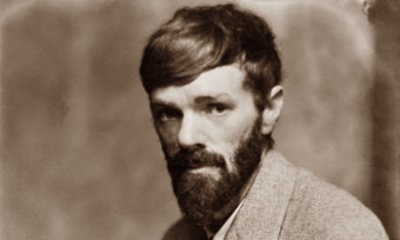
D. H. Lawrence
(1885-1930)
A Young Wife
The pain of loving you
Is almost more than I can bear.
I walk in fear of you.
The darkness starts up where
You stand, and the night comes through
Your eyes when you look at me.
Ah never before did I see
The shadows that live in the sun!
Now every tall glad tree
Turns round its back to the sun
And looks down on the ground, to see
The shadow it used to shun.
At the foot of each glowing thing
A night lies looking up.
Oh, and I want to sing
And dance, but I can’t lift up
My eyes from the shadows: dark
They lie spilt round the cup.
What is it? – Hark
The faint fine seethe in the air!
Like the seething sound in a shell!
It is death still seething where
The wild-flower shakes its bell
And the sky lark twinkles blue –
The pain of loving you
Is almost more than I can bear.
D. H. Lawrence poetry
fleursdumal.nl magazine
More in: Archive K-L, D.H. Lawrence, Lawrence, D.H.
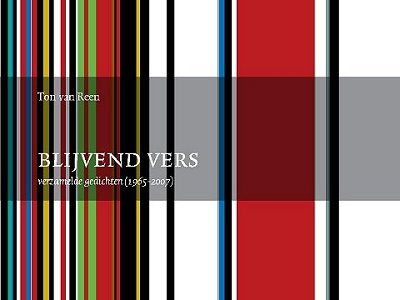
Ton van Reen
spitsuur
Een sirene jankt
en de dag
spat open
fabrieken lopen leeg
schoorstenen wuiven
de arbeiders na
auto’s spelen van
wie komt er in mijn hokje
langzaam lopend
in een rijtje
behangen ze de lucht
met hun ratelend hart
op hoge benen
lopen meisjes voorbij
ongemerkt halen ze
tussen zwoele wanden van ogen
de avond binnen
Uit: Ton van Reen, Blijvend vers, Verzamelde gedichten (1965-2007)
Uitgeverij De Contrabas, 2011, ISBN 9789079432462, 144 pagina’s, paperback
kempis.nl poetry magazine
More in: Archive Q-R, Reen, Ton van, Ton van Reen

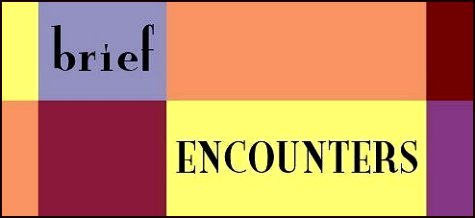
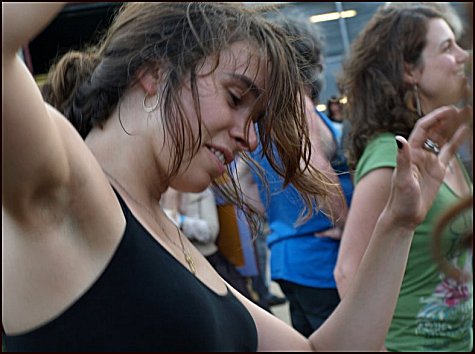





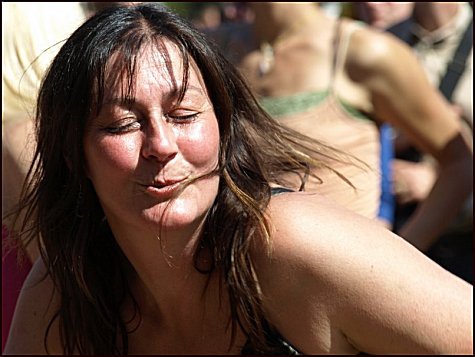

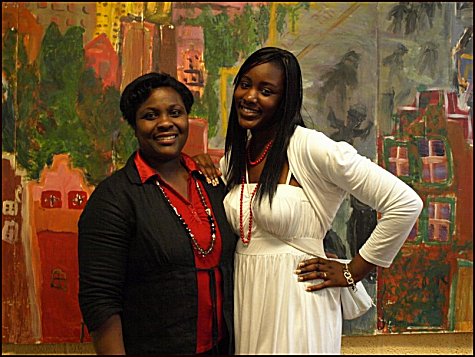
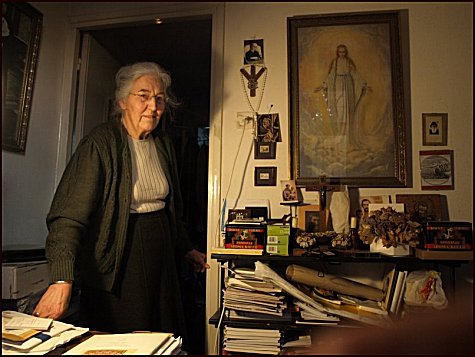

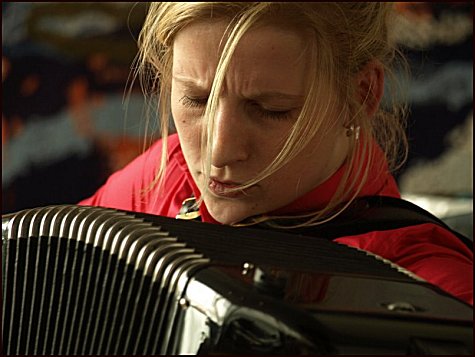
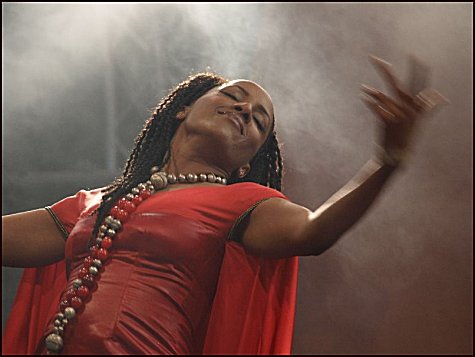
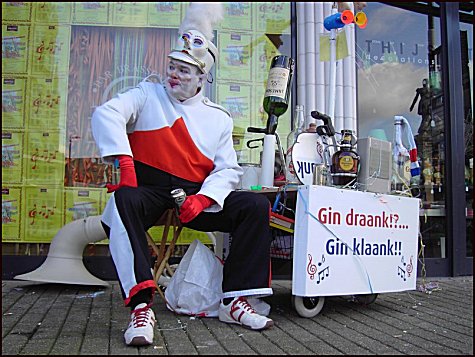
Joep Eijkens: Brief Encounters (01)
© Joep Eijkens photos 2005 – 2011
fleursdumal.nl magazine
More in: Joep Eijkens Photos
Wij zitten niet op onze luie reet aan het zwembad een beetje slap te twitteren. (Henk & Ingrid)
http://www.henkeningrid.org/
More in: MUSEUM OF PUBLIC PROTEST, The talk of the town
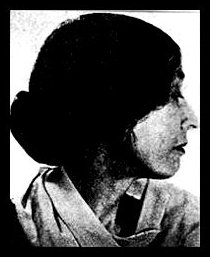
Lola Ridge
(1871-1941)
The Legion of Iron
They pass through the great iron gates–
Men with eyes gravely discerning,
Skilled to appraise the tunnage of cranes
Or split an inch into thousandths–
Men tempered by fire as the ore is
And planned to resistance
Like steel that has cooled in the trough;
Silent of purpose, inflexible, set to fulfilment–
To conquer, withstand, overthrow …
Men mannered to large undertakings,
Knowing force as a brother
And power as something to play with,
Seeing blood as a slip of the iron,
To be wiped from the tools
Lest they rust.
But what if they stood aside,
Who hold the earth so careless in the crook of their arms?
What of the flamboyant cities
And the lights guttering out like candles in a wind …
And the armies halted …
And the train mid-way on the mountain
And idle men chaffing across the trenches …
And the cursing and lamentation
And the clamor for grain shut in the mills of the world?
What if they stayed apart,
Inscrutably smiling,
Leaving the ground encumbered with dead wire
And the sea to row-boats
And the lands marooned–
Till Time should like a paralytic sit,
A mildewed hulk above the nations squatting?
Lola Ridge poetry
kempis.nl poetry magazine
More in: Archive Q-R, Ridge, Lola
Thank you for reading Fleurs du Mal - magazine for art & literature